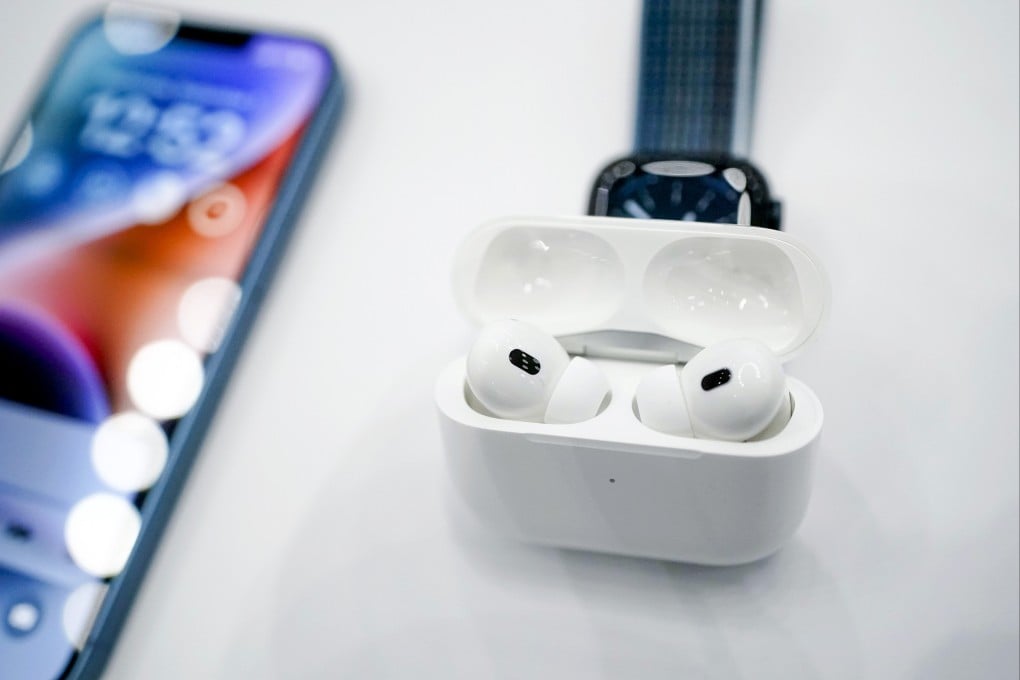Hotter than iPhone 14: US$14 AirPods Pro lanyard is selling out on Apple’s website in China amid online mockery
- The wait time for orders of Incase’s lanyard surpass those of the regular iPhone 14, similar to the wait for the 14 Pro Max
- The lanyard has proven popular even as netizens mocked the high price tag because similar products cost as little as 36 US cents in China

Wait times for online orders of the lanyard, which was unveiled alongside the new AirPods at a product launch event last week, have stretched past five weeks, according to Apple’s website. As of Tuesday, the earliest delivery time was October 19.
The wait time is similar to that of the iPhone 14 Pro Max, the most popular new handset unveiled last week, and surpasses that of the regular iPhone 14. This is despite the fact that it remains in stock at Apple’s bricks-and-mortar locations across major cities, including Beijing, Shanghai and Shenzhen.
“I wouldn’t even dare to buy such an expensive rope to hang myself,” one user wrote, receiving more than 16,000 likes. “There are a lot of these in a 2 yuan store,” said another.
However, some users argued that the price is acceptable for consumers who already spent 1,899 yuan on the AirPods Pro 2. Others questioned whether Apple was deliberately keeping stock low as a form of hunger marketing.
In addition to being available in stores in mainland China, the lanyard is still shipping immediately in some markets such as Hong Kong.